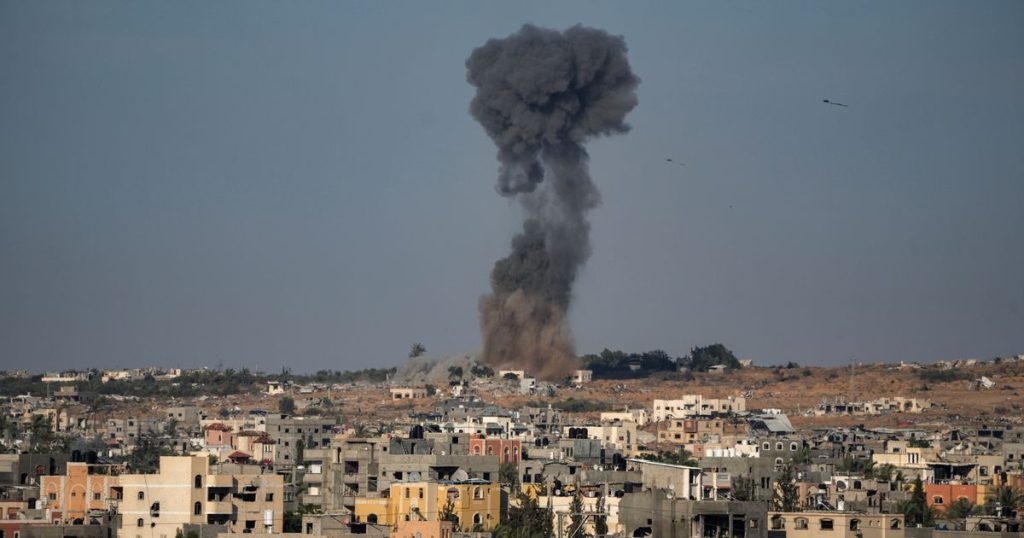Israeli families of hostages held by Hamas are calling for all parties to accept a proposal detailed by U.S. President Joe Biden to end the ongoing war and bring their loved ones home. Biden outlined a three-phase deal proposed by Israel to Hamas, stating that the militant group is no longer capable of carrying out large-scale attacks on Israel. Cease-fire talks have stalled, with Israel confirming that its troops are operating in central parts of Gaza’s southern city of Rafah. Hostage families are urging both Israel and Hamas to accept the deal to secure the release of around 100 remaining hostages and the bodies of 30 more for an extended cease-fire.
Many host families blame Israel’s government for delaying a deal that has resulted in the deaths of some hostages while in captivity under Hamas. The government has expressed a desire for a total victory that would remove Hamas from power, dismantle its military structure, and return the hostages. The proposal announced by Biden includes a phased approach that begins with a full and complete cease-fire, followed by the release of certain hostages in exchange for Palestinian prisoners. The next phases involve the release of all remaining living hostages and the start of major reconstruction in Gaza.
Biden emphasized the difficulty of keeping the Israeli proposal on track, acknowledging that negotiations are required to progress from one phase to the next. Hamas has responded positively to the proposal, calling for explicit commitments from Israel to achieve a permanent cease-fire, troop withdrawal from Gaza, a prisoner exchange, and other conditions. While similar to previous proposals, this deal offers the potential to halt the war for an unspecified duration, allowing for the renewal of military operations by Israel if Hamas fails to meet its commitments.
Experts see Biden’s speech as a hopeful sign that the war may come to an end and bring the hostages home. German Foreign Minister Annalena Baerbock described it as an “urgent hope” for lasting peace and stated that it is now up to Hamas to demonstrate its commitment to ending the conflict. However, fighting continues in Gaza, with Israel targeting Hamas fighters responsible for attacks. Talks are ongoing in Cairo to address the closure of the Rafah crossing, a crucial entry point for aid into Gaza. Egypt has refused to reopen the crossing until Palestinians are reinstated in control, a demand supported by the White House.
Overall, the proposal presented by Biden offers a potential path to ending the conflict in Gaza and bringing the remaining hostages home. It is crucial for both Israel and Hamas to accept the deal and work towards a cease-fire that includes the release of prisoners and the rebuilding of Gaza. The international community, led by the U.S., is actively engaged in negotiations to facilitate the resolution of the conflict and provide much-needed humanitarian assistance to the people of Gaza. The fate of the hostages and the future of the region now hang in the balance as all parties navigate the complexities of securing a lasting peace agreement.


